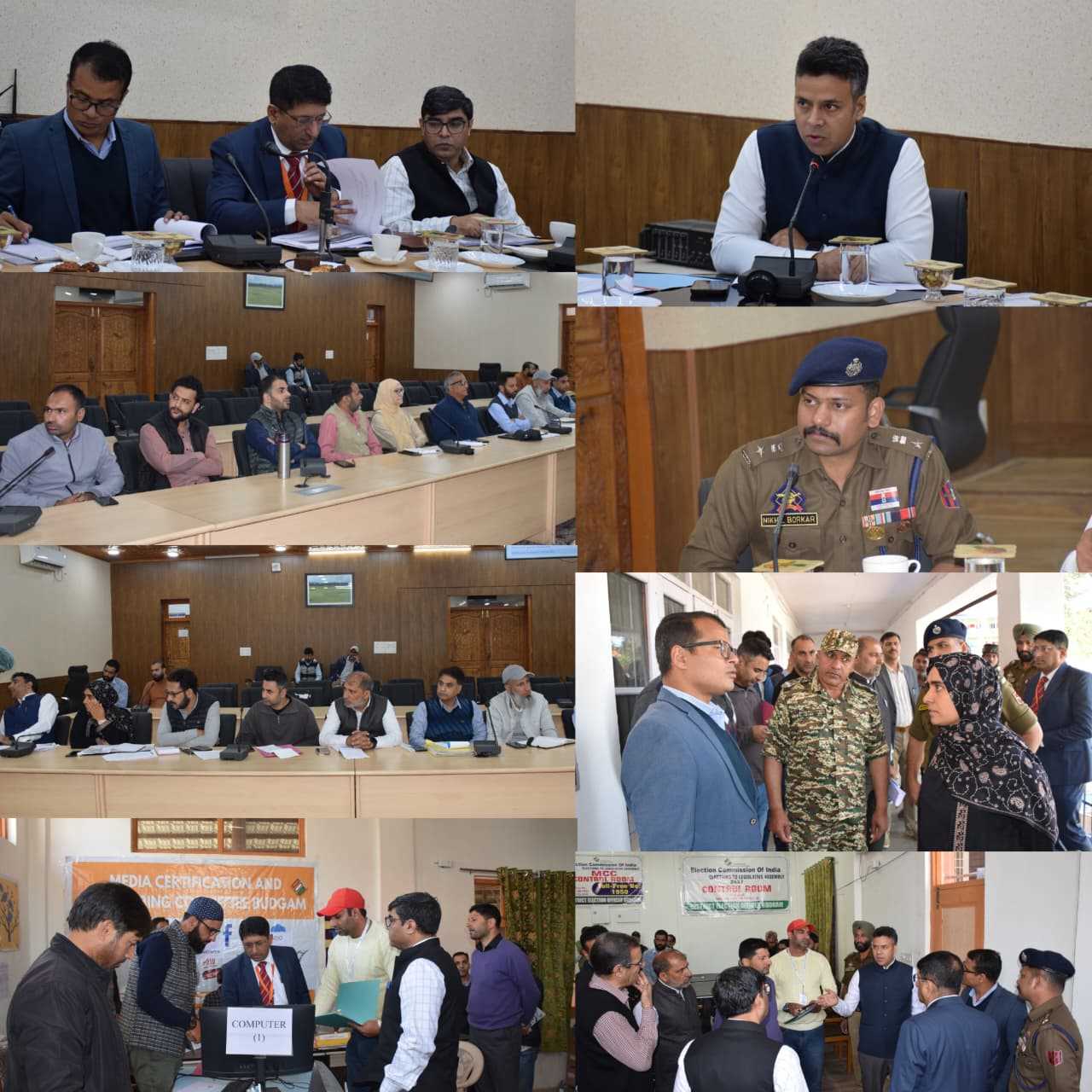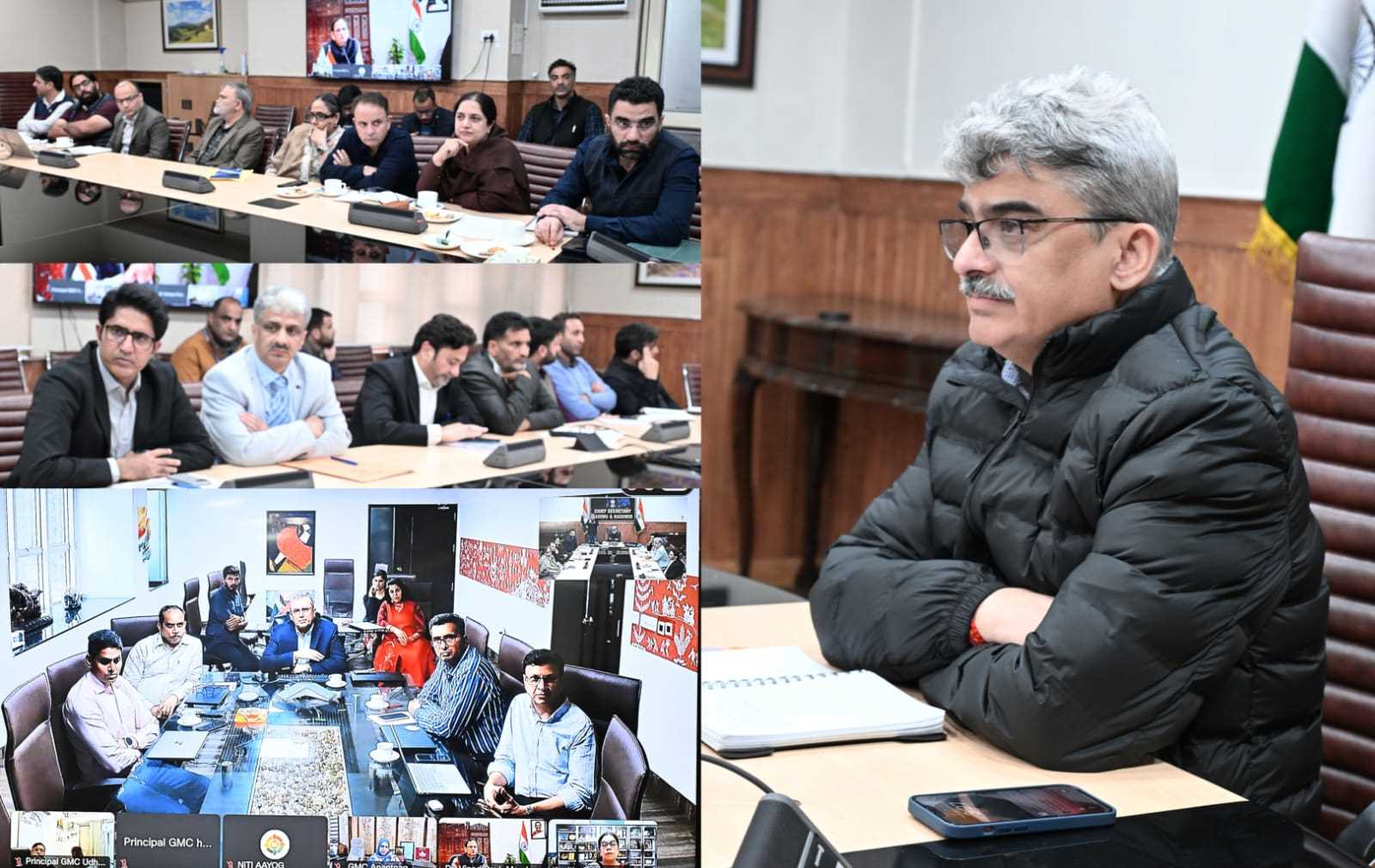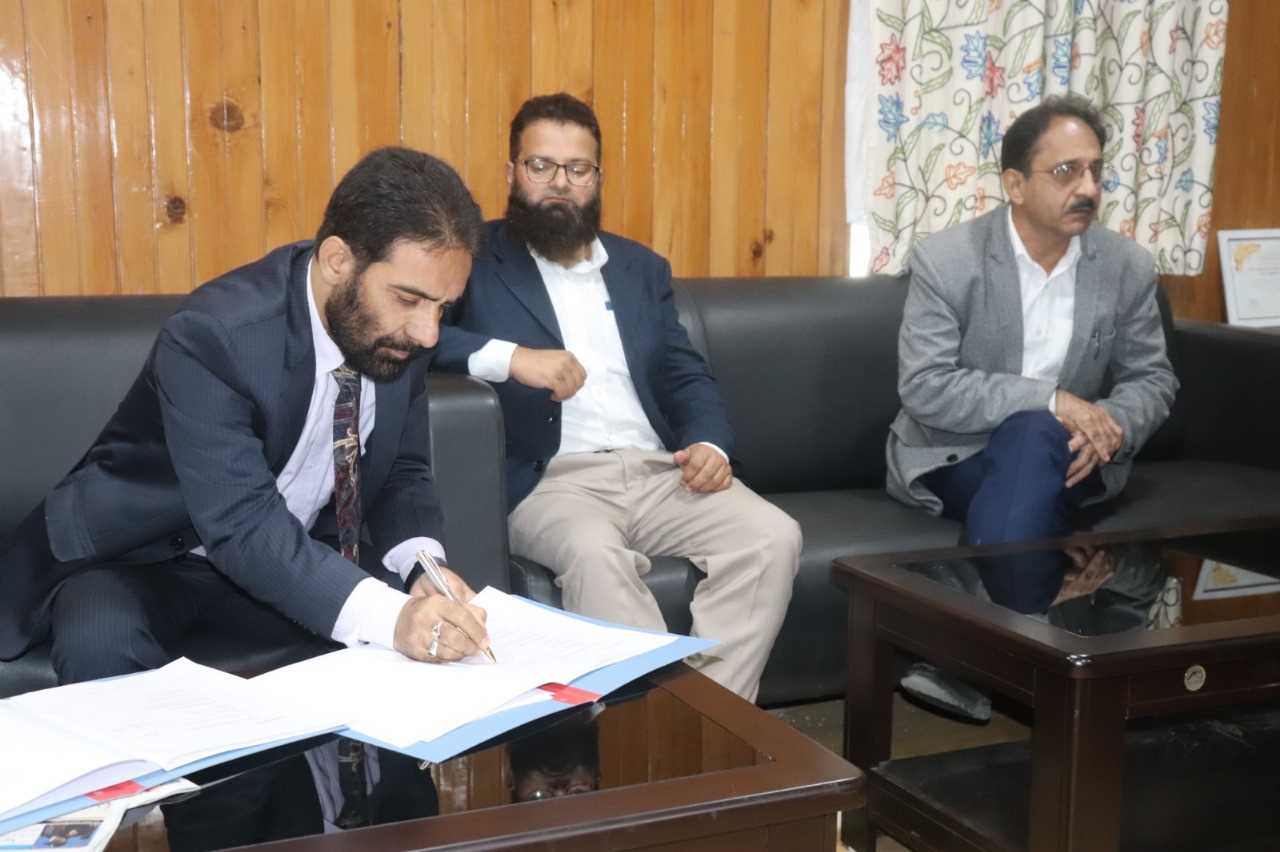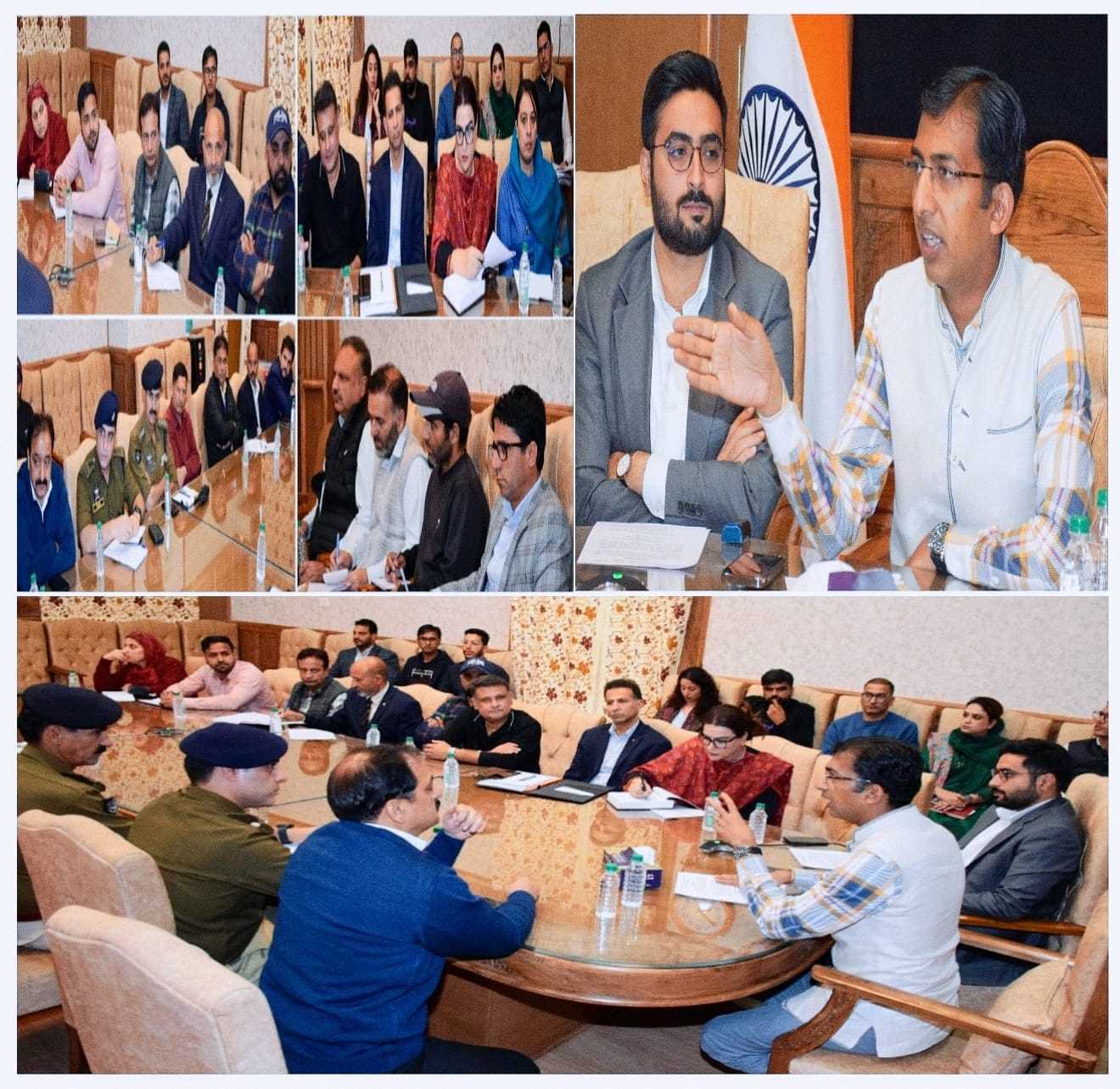Kashmir is a land that breathes paradox. Its valleys, cradled by Himalayan peaks, shimmer with a beauty that poets chase, yet its name often evokes images of barbed wire and unrest. To write of Kashmir from a factual perspective is to walk a tightrope: one misstep, and it’s called propaganda; one truth too raw and its despair. But Kashmir’s story isn’t owned by headlines or border disputes, it belongs to its people, to the heroes who rise from Kashmir’s curfewed lanes and rugged hills, carrying dreams bigger than the conflicts around them. Tajamul Islam, Afreen Hyder, Faisal Ali Dar, Parvez Rasool, Umran Malik, Abdul Samad; these aren’t just names on a roster; they’re the pulse of a region that refuses to be defined by its scars. Their victories, in kickboxing rings, taekwondo mats and cricket pitches, are not just India’s pride but the world’s lesson that resilience isn’t born in ease; it’s forged in fire.
Let’s start with Tajamul Islam, a girl from Bandipora’s Tarkpora, born in 2008 when the Valley was more synonymous with protests than podiums. Picture a seven-year-old, barely tall enough to see over a ring’s ropes, stepping into Italy’s world sub junior kickboxing championship in 2016. She wasn’t just fighting opponents; she was fighting the weight of a region’s doubts, the whispers that girls from small Kashmiri villages don’t conquer global stages. Yet she did, claiming gold, then doubling down in Cairo in 2021, defeating Argentina’s best with a ferocity that belied her age. Now, at 17, she trains 700 girls in her own academy, teaching them to punch through stereotypes as much as punching bags. Tajamul’s story isn’t a tidy tale of triumph but a rebellion against a world that often writes off places like hers. She’s a symbol of what happens when talent is nurtured, not stifled. For the globe, she’s proofed that courage can bloom in the shadow of conflict.
Afreen Hyder carries that same fire. Born in Srinagar in 2000, she grew up dodging curfews to train in taekwondo, a sport that demands precision in a place where chaos often reigns. By 2024, she was ranked among the world’s top 200, snagging silver in China’s Open and bronze in Israel’s 2022 G2 tournament. Her kicks aren’t just athletic; they’re a statement, a refusal to let her hometown’s struggles define her. Afreen left Srinagar for Delhi, scraping by on grit and scholarships, navigating a sports system that’s often unkind to outsiders. Her medals shine for India, but they burn brightest for Kashmir, where girls watch her and see possibility. She’s not a prop for national pride; she’s a warrior who’d inspire any young woman, from Kabul to Cape Town, to fight for her place in a world that tries to box her in.
Cricket, India’s heartbeat, finds its Kashmiri soul in Parvez Rasool, Umran Malik, and Abdul Samad. Parvez Rasool, born in Bijbehara in 1989, was the first Kashmiri Muslim to wear India’s blue, bowling off spin in a 2014 ODI against Bangladesh and dismissing Eoin Morgan in a 2017 T20I. His journey wasn’t paved with privilege; he honed his craft on makeshift pitches, leading Jammu and Kashmir to Ranji glory while mentoring kids in curfew hit towns. Umran, born 1999 in Jammu, earned the nickname “Jammu Express” by hurling 157 km/h thunderbolts in the IPL, debuting for India in T20Is against Ireland in 2022. His pace is raw, unpolished, like the Valley itself; untamed and unstoppable. Abdul Samad, just 24, smashes centuries in Ranji 2024 and sixes for Lucknow Super Giants, teetering on the edge of a T20I cap. These men aren’t just cricketers; they’re storytellers, showing the world that talent doesn’t need a postcode to shine. Their runs and wickets speak to any kid in a conflict zone, from Belfast to Bogotá, proving that dreams can outrun despair.
Faisal Ali Dar, born 1989 in Bandipora, is the quiet giant behind this revolution. His Ali Sports Academy, built on 50-rupee fees, has trained 14,000 youth across 18 sports, producing stars like Tajamul. Honoured with a Padma Shri in 2022 and a Forbes Asia 30 Under 30 nod, Faisal didn’t chase medals for himself; he built arenas where others could. In a region where youth are often caught between stones and slogans, he offered balls and dreams instead. His work isn’t a government photo op; it’s a lifeline, mirroring India’s push through Khelo India to invest 1.5 lakh crores in grassroots talent. Faisal’s vision resonates beyond the Valley, echoing efforts in places like Medellín, where sports pull kids from violence. He shows the world that change starts small but grows fierce.
The arts, too, amplify Kashmir’s voice. Mohit Raina, born 1982 in Jammu, brought the Valley’s stoicism to life as Shiva in Mahadev and a soldier in URI, embodying India’s pluralistic pride. Zaira Wasim, born 2001 in Srinagar, stunned the world in Dangal before stepping away for faith, sparking global conversations on choice. Their stories aren’t scripted to sell unity; they’re raw, human, showing that identity can be Kashmiri, Indian and everything in between; a lesson for any society wrestling with belonging.
Kashmir’s heroes don’t erase the Valley’s struggles; they rise through them. Tajamul trained amid shutdowns. Umran bowled despite skepticism about “small town” talent. Faisal built his academy in a place where hope is a daily gamble. The government’s role isn’t to deny these realities but to amplify the voices defying them. Programs like Khelo India or digital hubs in villages aren’t just policy, but bridges, connecting Kashmir’s youth to global stages. Critics might scoff, but these heroes aren’t props; they’re proof that India’s strength lies in its people, not its press releases.
Globally, Kashmir’s heroes speak to anyone fighting to be seen. Tajamul’s gold in Cairo mirrors a refugee’s marathon in Athens. Faisal’s academy echoes soccer camps in Rio’s favelas. Umran’s pace could inspire a sprinter in Soweto. Their lesson is universal: resilience isn’t waiting for peace; it’s building something better in the chaos.
Kashmir’s story isn’t a fairy tale. It’s a saga of blood, sweat and stubborn hope. Its heroes; kicking, bowling and building, aren’t here to sell an agenda. They’re here to remind us that even in the toughest corners, dreams don’t just survive; they conquer. Tajamul, Afreen, Faisal, Parvez, Umran, Samad; they’re not just India’s pride; they’re the world’s teachers, showing that resilience is the truest victory, no matter where you stand.







